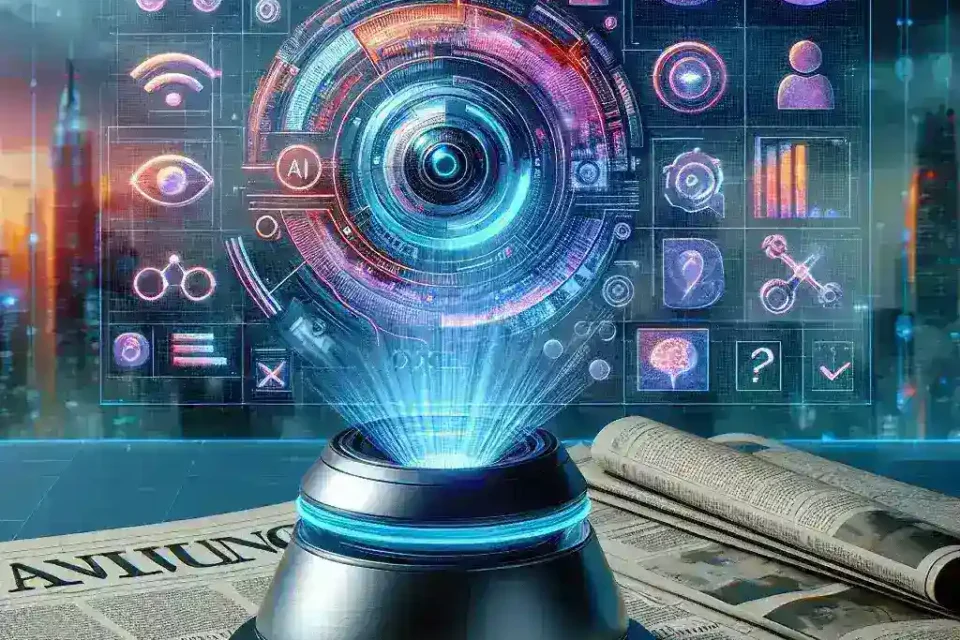AI-Powered Content Creation and the Future of Media

Introduction
In recent years, artificial intelligence (AI) has become a pivotal force in transforming various industries, and media is no exception. AI-powered content creation is revolutionizing the way we produce, distribute, and consume information. This article delves into the profound impact of AI on the future of media, exploring its benefits, challenges, and potential implications.
The Role of AI in Content Creation
AI technology has advanced significantly, enabling creative processes that were once the sole domain of humans. Some ways AI is enhancing content creation include:
- Automated Writing: AI can generate articles, reports, and even poetry with remarkable efficiency. Tools like OpenAI’s GPT-3 can produce human-like text, making it easier for writers to brainstorm ideas and generate drafts.
- Visual Content Generation: AI algorithms can create images and videos, allowing artists and marketers to develop visually appealing content quickly. Platforms like DALL-E showcase the capabilities of AI in producing stunning visuals from textual descriptions.
- Chatbots and Voice Assistants: AI-driven tools are now capable of interacting with users, providing information and generating personalized content based on user preferences.
Benefits of AI in Media
The incorporation of AI into media production presents numerous advantages:
- Increased Efficiency: AI can significantly reduce the time it takes to create content. News articles can be generated in minutes, and repetitive tasks can be automated, freeing up human resources for more complex creative work.
- Personalization: AI’s analytical capabilities allow for the customization of content to suit individual preferences, enhancing user engagement and satisfaction.
- Data-Driven Insights: AI can analyze vast amounts of data to provide insights into audience behavior, enabling media companies to tailor their content strategies effectively.
Challenges and Concerns
While the benefits of AI in content creation are apparent, there are challenges and ethical concerns that need to be addressed:
- Quality Control: AI-generated content may lack the nuanced understanding and creativity inherent in human-produced material, raising questions about quality and authenticity.
- Job Displacement: The rise of AI in content creation raises concerns about job security for writers, editors, and other media professionals, as automation could replace roles traditionally held by humans.
- Ethical Implications: The use of AI in media raises questions about copyright, misinformation, and the responsibility of content creators regarding the information they disseminate.
AI in Journalism
One area where AI is making a significant impact is journalism. News organizations are increasingly using AI algorithms to generate real-time news reports, analyze data, and even conduct research. For instance:
- Automated Reporting: Media companies like The Associated Press utilize AI to draft and distribute news articles on sports and financial earnings, ensuring speedy coverage of breaking news events.
- Fact-Checking: AI tools can assist journalists in verifying information, helping to combat misinformation and maintain journalistic integrity.
- Sentiment Analysis: AI can analyze social media and public sentiment, helping journalists understand the audience’s concerns and adjust their coverage accordingly.
AI in Marketing and Advertising
In addition to journalism, AI is reshaping marketing and advertising strategies. Businesses are leveraging AI to create targeted ad campaigns and analyze customer behavior:
- Predictive Analytics: AI can analyze customer data to predict future purchasing behavior, enabling marketers to tailor their strategies and increase conversion rates.
- Content Recommendations: Streaming platforms like Netflix and Spotify use AI algorithms to recommend content based on user preferences, enhancing user engagement.
- Ad Creation and Optimization: AI tools can generate ad copy and visuals, optimizing them for different platforms to achieve maximum impact.
The Future of Entertainment
The entertainment industry is also feeling the effects of AI. From scripting movies to creating immersive experiences in gaming, AI will play a pivotal role in shaping the future:
- Content Creation: AI will increasingly assist in screenwriting and story development, potentially leading to new genres and innovative storytelling techniques.
- Virtual Reality and AI: AI-driven simulations in gaming can create responsive, dynamic environments that adapt to player choices, changing the way we experience games.
- Interactive Content: AI can facilitate the creation of interactive content that engages users on a deeper level, such as AI-enhanced storytelling that evolves based on audience interactions.
Conclusion
The rise of AI-powered content creation marks the beginning of an exciting era in media. While it offers tremendous opportunities for efficiency, personalization, and creative exploration, it also presents challenges around quality, job displacement, and ethical responsibility. As we continue to embrace AI in media, it is essential to navigate these complexities thoughtfully, ensuring that we harness technology to enhance creativity while preserving the human element that lies at the heart of storytelling. The future of media could very well be a blend of human creativity and AI efficiency, paving the way for innovation and new possibilities.
